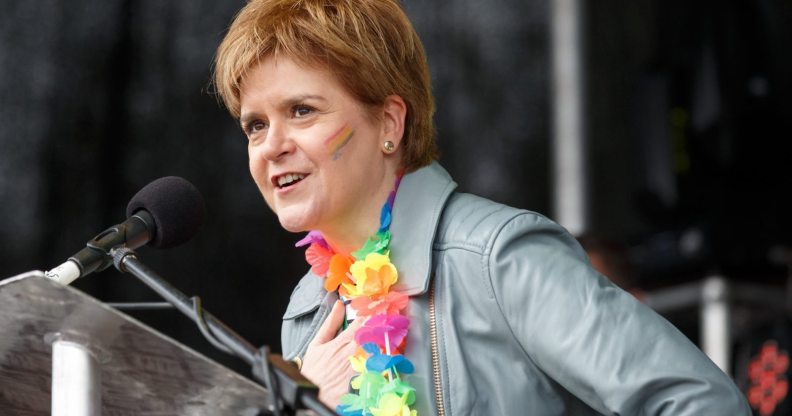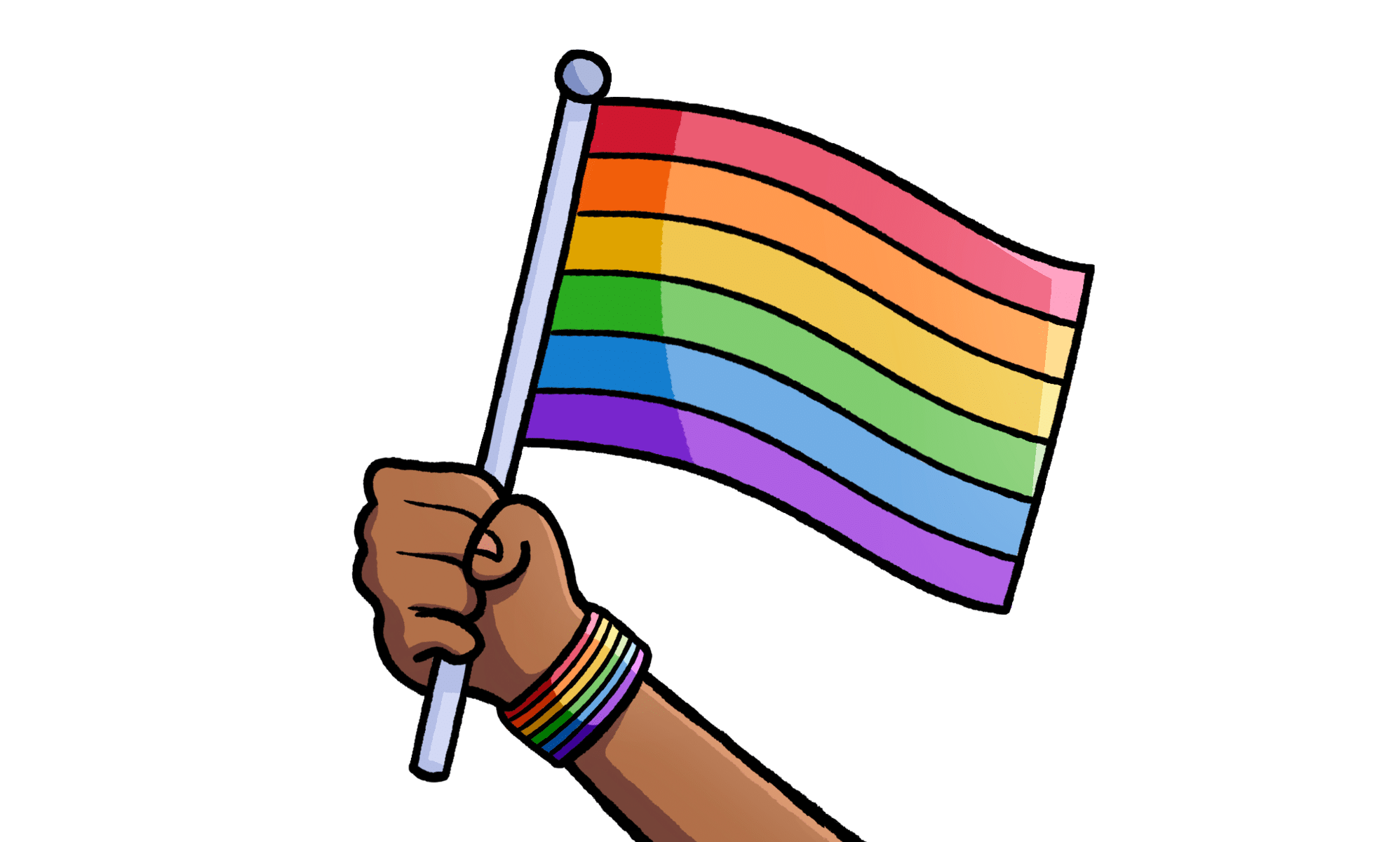Nicola Sturgeon to apologise for historic gay sex offences

Scotland’s First Minister Nicola Sturgeon at Glasgow Pride (Getty)
Scottish First Minister Nicola Sturgeon is set to apologise on behalf of the Scottish Government for historic gay sex offences.
Ms Sturgeon will apologise on Tuesday 7 November at Holyrood as new legislation to offer an automatic pardon to those affected by the law will be filed.
The legislation was pledged by Ms Sturgeon in September when she presented her programme for government.
The Scottish version of the Turing Law will pardon those convicted of historic gay sex offences.
The issue was also raised by former SNP deputy leader Angus Robertson last October at the PinkNews Awards.
As well as giving a personal apology, he called for party leaders to say sorry for the way gay men were treated in the past.
A Scottish Government spokesman told the i: “The First Minister will give a statement of apology to those convicted prior to 2001 under discriminatory laws against same-sex sexual activity that is now legal.
“The apology will be made on behalf of the Scottish Government for the treatment of homosexual men under previous governments and will coincide with the introduction of legislation to provide people convicted under these laws an automatic pardon.
“The Bill will right a historic wrong and give justice to those who found themselves unjustly criminalised simply because of who they loved.”
Previously raised in October, if approved by the Scottish Parliament it would mean that all convicted gay and bisexual men would receive a formal pardon for past convictions for their “crimes”.
The pardon will only apply to men as gay and bisexual women were never legally criminalised.

Scottish legislation would be different from the laws in England and Wales which only grant automatic pardons to those who died before February this year, whereas those living must apply for a ‘disregard.’
A disregard allows a person convicted of or cautioned for one or more certain offences to apply to have a conviction or caution disregarded.
The most significant effect of this is that any details of a conviction or caution are deleted in official records.
Furthermore, the person who has had a conviction or caution disregarded is treated for all purposes in law as if they had not committed the offence.
Related: This is what the Turing Law pardon means
The general effect of a pardon, however, is to remove from the subject of the pardon all the pains, penalties and punishments ensuing from a conviction.
The Scottish Justice Secretary Michael Matheson, said he wanted to see an “automatic formal pardon” for those penalised by said “discriminatory” laws.
Tim Hopkins, director of the equality network, told the BBC that the pardon may apply to “people prosecuted 300 and more years ago.
“The problem in England is that if you were still alive on 1 February this year then there is no provision for an automatic pardon.
“The only way to do it there is to apply via a detailed application form which many people feels adds insult to injury.”
SNP MP John Nicolson called for blanket pardons for those still living, but Westminster has said this could see people claiming pardons for acts that are still illegal.
Campaign group Stonewall echoed Nicolson’s concerns, pointing out that his bill excluded pardoning anyone convicted of presently illegal offences, such as non-consensual sex and sex with someone under the age of consent.

“The Scottish government will also introduce a scheme to allow people with such convictions to apply to have them ‘disregarded’ so they would never show up on a criminal record check,” Nicholson said.
To be eligible for a pardon or a disregard, a person who has been convicted of or cautioned for a gay sex offence must meet the following conditions:
First, the other person involved in the conduct constituting the offence must have consented to it;
Second, the other person involved in the conduct constituting the offence must have been over the age of consent; and
Third, the conduct constituting the offence, if it took place today, must not constitute the offence of “sexual activity in a public lavatory.”
Nicola Sturgeon is expected to reveal details of the bill on September 5.
These announcements come 37 years after Scotland partially decriminalised homosexuality in 1980, 13 years after England and Wales.

